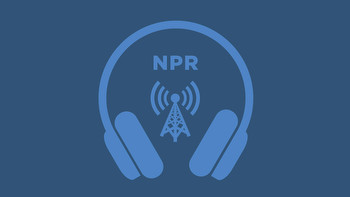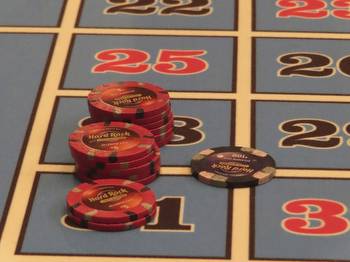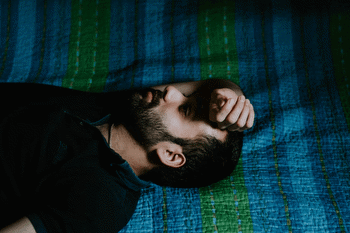I have £30k online gambling debts... how can I tell my wife?

Q: During lockdown, I started betting on the football results as a way to break the boredom. I was lucky at first, winning anything from £300 to £700 a month, and I enjoyed the buzz.
I started to see it as an additional income and figured the more I put in, the more I’d make, so I started gambling £1,000 here and £3,000 there until I was spending on average £5,000 a month.
Of course, the winning streak didn’t last and that’s when I started dipping into my overdraft and then our family savings, convinced a big win was just around the corner and then I could stop.
In the space of just over a year, I’ve spent £30k, that was supposed to pay towards an extension on our house. I’ve always looked after the family finances so my wife has no idea. I don’t know how on earth I’m going to tell her the money has gone.
She recently demanded to know why I’m always awake until the early hours and I told her I had a porn problem as it seemed more acceptable than the truth. I know this hurt her, but I fear the truth could destroy us. What should I do?
Addiction counsellor and author Mark Dempster, who is based in London’s Harley Street, says:
First, give yourself credit for admitting that you have an issue – breaking the denial and being honest with yourself is a big step in addiction recovery.
Second, you need to ask for help, and fast.
I know this because I’ve been there. I hit rock bottom with a gambling addiction when I was 28 and all my money dwindled away.
I felt more and more disempowered and at the mercy of my addiction, to the point where I was filled with shame.
Today, I tell my clients that addiction is like having a twin that resides inside you. At the height of any addiction, the twin is more powerful than you, so you need help to combat your own self-destruction.
You have to be honest with your wife. This means disclosing every detail without sugarcoating, including how much money you’ve spent, the debt you’re in and how long you’ve had a problem.
Addiction is an illness, not a moral deficiency, and if she’s supportive and loves you, hopefully, you can work through it together.
None of this is easy and it will require a huge amount of trust to begin dismantling the consequences of your behaviour caused by the addiction – in this case, the debts and lying about the porn problem. You can only begin repairing that trust with total honesty, including a heartfelt apology.
Start with solutions. Come clean, tell her this is what I’ve done, for how long and to what extent, and crucially what you intend to do next – for you, I would recommend starting by finding a gambling addiction therapist and attending Gamblers Anonymous– before asking for her support.
Be mindful of the emotions your wife will experience when you come clean. Even deflecting her suspicions by blaming porn could have sparked low self-esteem and unrealistic comparisons, never mind the inevitable panic and anger she will feel over the loss of the money, which is why complete transparency is now essential.
Once you’ve spoken to her, give her the time and respect to let your confession sink in, and acknowledge the impact this will have on her. You could say, ‘I understand you might want to leave and I take responsibility if that’s the case because of my condition, but I would like us to get through it together.’
Therapy, Gamblers Anonymous and empowering your wife (for example, by giving her full control of the family finances, monitoring transactions and effectively giving you pocket money) is a good plan.
To tackle this kind of debt, you need to speak with a debt management professional but, crucially, your wife has to stay in charge of the purse strings, at least for the first six months (or however long your debt management plan spans). This will help to give her physical control over an emotionally uncontrollable situation, which will help towards regaining her trust.
Then, it’s time to work towards beating your addiction. Gambling, like any addiction, is the symptom of an emotional disturbance underneath – often trauma or emotional neglect as a child – so now is the time to dig deep and start looking at the root of the issue.
There’s no doubt that lockdowns have had an impact, with little external stimulus to distract addicts and keep them in healthy routines. We live in a time when every second advert in the evening is a gambling ad, kids are groomed into gambling via ‘fun’ games and there are now 140,000 children aged 11 to 16 who have or risk having a gambling addiction, according to a report by the Gambling Commission. But the speed at which your gambling spiralled suggests to me that you will need the support of professionals and loved ones to avoid relapsing in the future.
When seeking out an addiction therapist, look for somebody who specialises in gambling addiction. Ideally, somebody who has experienced the illness him or herself.
It’s different to a dependency on, say, drugs and alcohol, because it can be hidden more easily and the world has normalised betting and mis-sold us a ‘get rich quick’ dream, so it is often seen as less harmful than other addictions. But I have clients who have lost hundreds of thousands of pounds and been left with nothing. It’s a huge driver of male mental health issues and keeping any addiction in the shadows only adds to its power.
Ultimately, taking full responsibility and getting professional support will help rebuild trust between you and your wife and that will grow stronger over time. It’s the best goal to aim towards – the most important thing is that you have to start now.’


































